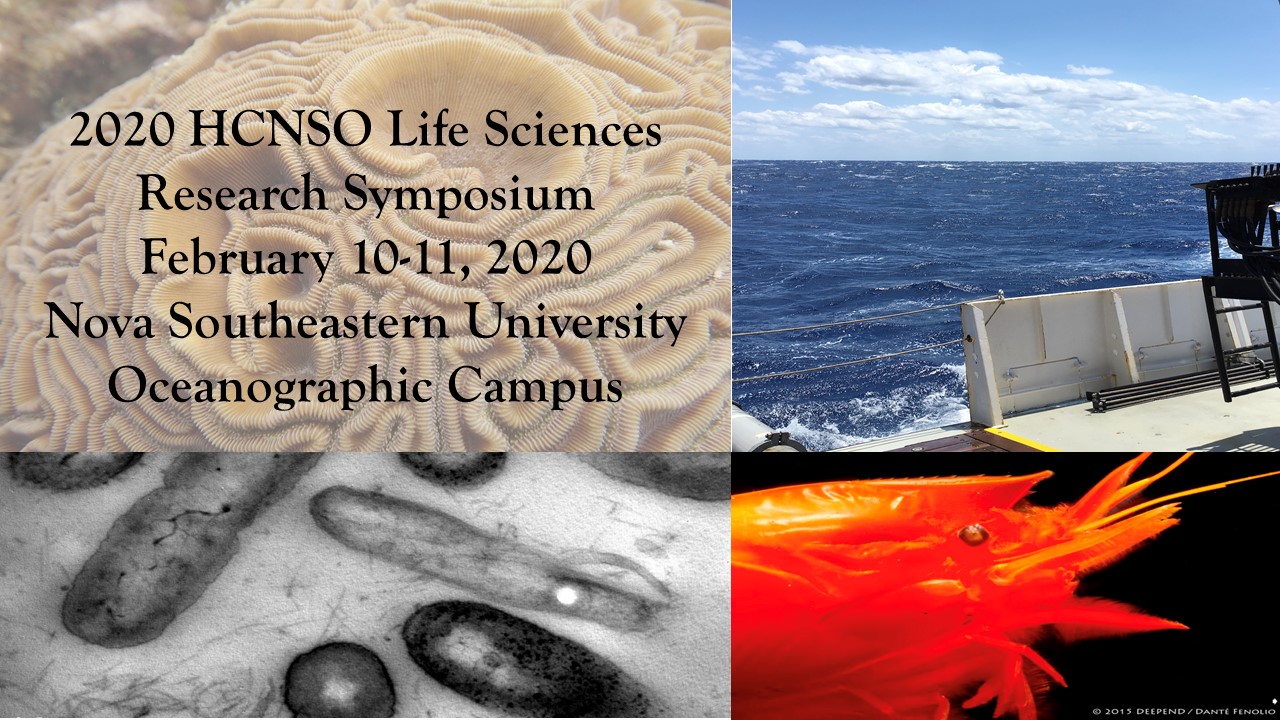Humanity's Changing Relationship to the Ocean
Location
HCNSO Guy Harvey Oceanographic Center Nova Southeastern University
Start
2-10-2020 11:30 AM
End
2-10-2020 12:30 PM
Type of Presentation
Oral Presentation
Abstract
The oceans are in danger and the stakes are high. Multiple threats of overfishing, pollution, habitat destruction, and climate change are driving a great Anthropocene extinction of ocean life. Coral reefs and kelp forests are dying, once productive coastal waters are being transformed into anoxic dead zones dominated by microbes and jellyfish, and global warming is making everything worse. Nevertheless, increasing efforts are being made to reverse the carnage. Transforming perceptions of marine creatures from mere commodities to the fascinating creatures they are is helping to change attitudes towards stewardship and conservation. Marine protected areas, improved fisheries management, and agricultural reform are helping to rebuild coastal fisheries and the ecosystems that support them. Charismatic animals like whales and sharks are thousands of times more valuable alive for ecotourism than dead and there are even promising efforts to regulate and protect the high seas. None of this will be enough unless we abandon fossil fuels for but the technology is increasingly available to make the switch. Fundamentally, the future of the oceans is up to us.
Presenter(s) Biography
Dr. Jeremy Jackson holds emeritus positions at the Smithsonian Tropical Research Institute and Scripps Institution of Oceanography where he led the Center for Marine Biodiversity and Conservation. He is also a Research Associate at the American Museum of Natural History. Jackson studies threats and solutions to human impacts on the environment and the ecology and evolution of tropical seas. He is a member of the National Academy of Sciences and has won numerous international prizes and awards. He is the author of more than 160 scientific publications and eleven books, most recently Breakpoint: Reckoning with America’s Environmental Crises and Shifting Baselines in Fisheries: Using the Past to Manage the Future.
Humanity's Changing Relationship to the Ocean
HCNSO Guy Harvey Oceanographic Center Nova Southeastern University
The oceans are in danger and the stakes are high. Multiple threats of overfishing, pollution, habitat destruction, and climate change are driving a great Anthropocene extinction of ocean life. Coral reefs and kelp forests are dying, once productive coastal waters are being transformed into anoxic dead zones dominated by microbes and jellyfish, and global warming is making everything worse. Nevertheless, increasing efforts are being made to reverse the carnage. Transforming perceptions of marine creatures from mere commodities to the fascinating creatures they are is helping to change attitudes towards stewardship and conservation. Marine protected areas, improved fisheries management, and agricultural reform are helping to rebuild coastal fisheries and the ecosystems that support them. Charismatic animals like whales and sharks are thousands of times more valuable alive for ecotourism than dead and there are even promising efforts to regulate and protect the high seas. None of this will be enough unless we abandon fossil fuels for but the technology is increasingly available to make the switch. Fundamentally, the future of the oceans is up to us.


